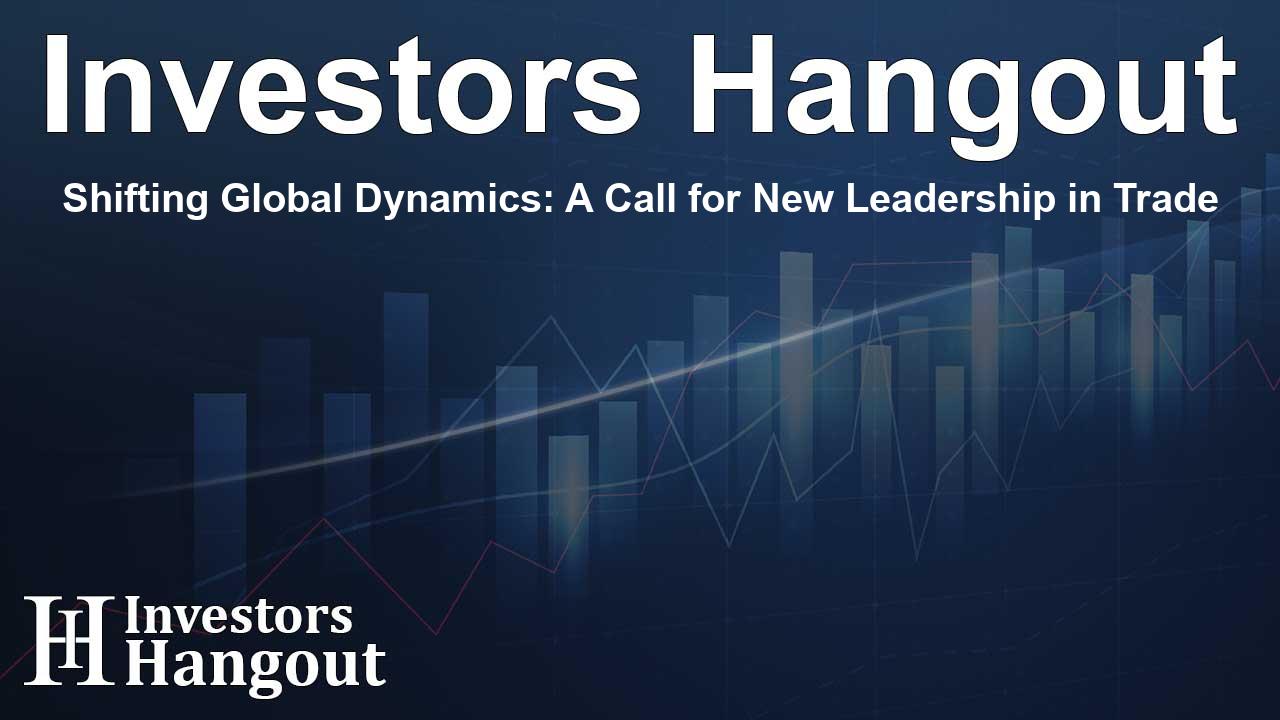Shifting Global Dynamics: A Call for New Leadership in Trade

Shifting Global Dynamics: A New Perspective on Leadership
Singapore Defense Minister Ng Eng Hen recently delivered a thought-provoking speech at the BMW Foundation Herbert Quandt Annual Leaders Roundtable. His insights on the evolving global landscape shed light on how established perceptions of international relations are transforming. Traditionally, the United States has been viewed as a stabilizing force since the end of World War II, but this image is now under scrutiny.
US Transition from Stabilizer to Demander
According to Ng, the U.S. has undergone a significant transition, now perceived less as a liberator and more as a disruptive force, even likening it to a landlord that demands rent. This shift in perspective highlights a departure from the post-war ethos where American leadership was synonymous with stability and order.
The Impact of Priorities
Ng's analysis pointed out an unsettling trend: America's historical emphasis on primacy in foreign policy has transformed into an overwhelming concern for its own interests, often at the cost of valuable global alliances. He warned that this prioritization of national interests disrupts the equilibrium that fosters global trade and cooperation.
Consequences of the U.S.-China Rivalry
The ongoing rivalry between the U.S. and China stands as a major geopolitical dilemma. With the introduction of new trade protections and tariffs, last encountered during the trade war between 2018 and 2019, Ng anticipates potential economic disruptions reminiscent of that period when bilateral trade between these economic giants suffered a notable decline.
Allies Seeking Alternatives
In the absence of clear bipartisan policy, U.S. allies appear to be reevaluating their relationships. The strenuous diplomatic efforts under the previous U.S. administration, which included tariffs on neighboring countries and pressure tactics, have prompted nations like Colombia to navigate complex decisions about their economic partnerships. Countries that once leaned towards the U.S. may now find themselves attracted to China's overtures of economic cooperation and support.
The Risk of Losing Global Leadership
Ng emphasized the risks associated with a leadership void on the global stage. Without a stabilizing force to uphold international cooperation, the progress and welfare of global systems are jeopardized. He expressed genuine concern that as the U.S. adopts a more inward-looking approach, opportunities for collaboration may dissipate.
China's Growing Influence
The undeniable rise of China as a leading manufacturing hub affords it substantial influence, particularly in critical sectors such as renewable energy and electric vehicles. Ng noted that as the U.S. withdraws from its global responsibilities, China is poised to solidify its partnerships with nations feeling alienated or unsupported.
Questions for the Future
Ng concluded by posing an important question: In light of these developments, which nation or coalition can assume the mantle of global stabilizer if the U.S. steps back? His inquiry challenges leaders to consider who can uphold international norms and provide support to global systems.
Frequently Asked Questions
What did Ng Eng Hen address in his recent speech?
Ng Eng Hen spoke about the changing perceptions of U.S. leadership on the global stage and how it affects international relations.
How has the perception of the U.S. changed according to Ng?
Ng stated that the U.S. is now viewed more as a disruptor or landlord, diverging from its traditional role as a stabilizing force.
What impact does the U.S.-China rivalry have on the global economy?
Ng highlighted that the rivalry may lead to economic disruptions and impact trade between these two global powers.
Why is the absence of a stabilizing leader concerning?
Without a strong leader to uphold global standards, progress on international collaborations could suffer significantly.
What question did Ng leave for the audience?
Ng asked who might step up to provide global leadership and stability in the event of U.S. withdrawal from its role.
About The Author
Contact Henry Turner privately here. Or send an email with ATTN: Henry Turner as the subject to contact@investorshangout.com.
About Investors Hangout
Investors Hangout is a leading online stock forum for financial discussion and learning, offering a wide range of free tools and resources. It draws in traders of all levels, who exchange market knowledge, investigate trading tactics, and keep an eye on industry developments in real time. Featuring financial articles, stock message boards, quotes, charts, company profiles, and live news updates. Through cooperative learning and a wealth of informational resources, it helps users from novices creating their first portfolios to experts honing their techniques. Join Investors Hangout today: https://investorshangout.com/
The content of this article is based on factual, publicly available information and does not represent legal, financial, or investment advice. Investors Hangout does not offer financial advice, and the author is not a licensed financial advisor. Consult a qualified advisor before making any financial or investment decisions based on this article. This article should not be considered advice to purchase, sell, or hold any securities or other investments. If any of the material provided here is inaccurate, please contact us for corrections.
